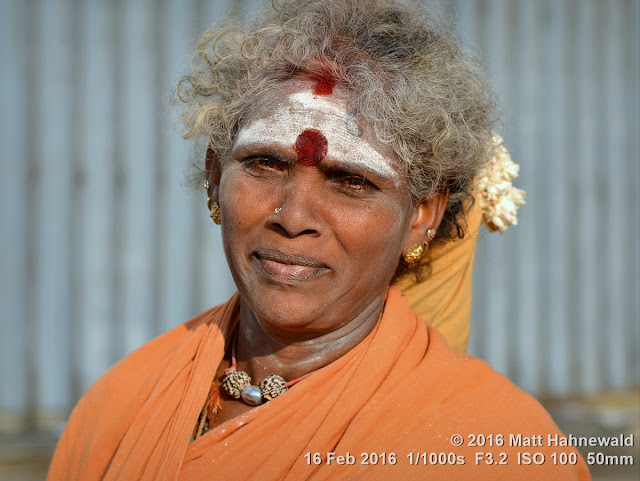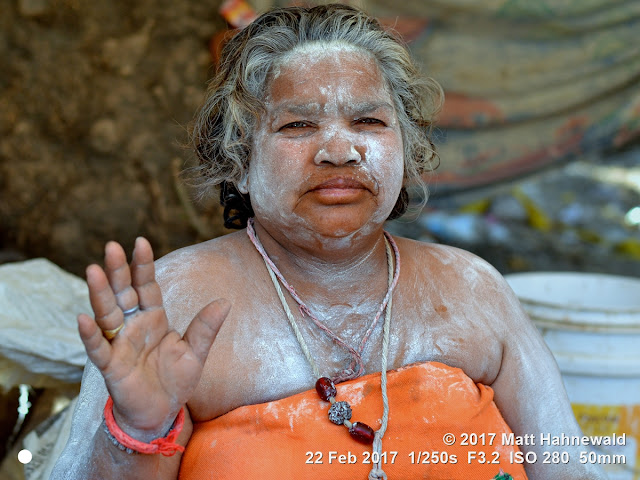In Hinduism, a sādhu is a religious ascetic or holy person. The sādhu is solely dedicated to achieving spiritual liberation aka mokṣa, the fourth and final aśrama (stage of life), through meditation and contemplation of Brahman. Sādhus often wear saffron-coloured clothing, symbolising their renunciation aka sanyāsa (renunciation of worldly possessions).
A female mendicant in Hinduism is often called a sādhvī, or sometimes (especially in Jainism) an aryika. The Sanskrit term sādhvī ("good or virtuous woman") refers to female renouncers who have chosen to live lives apart from or on the edges of society to focus on their own spiritual practices. It is also thought that the austere
practices of the sādhvī help to burn off their karma and that of the community at large.
Female sādhus aka sādhvīs exist in many sects and their lifestyles vary among the Hindu sects. In many cases, the women that take to the life of renunciation
are widows, and these types of sādhvīs often live secluded lives in ascetic compounds. Others start following their spiritual path as teens or twens and follow the sadhana through organized groups. Women are said to make up c. 5 - 10 percent of those on the sādhu/sādhvī path. Sādhvīs, like their male counterparts, devote their lives to deep meditation, a particular god, yoga and spiritual discussion and other related practices. Sādhvīs may be yoginis (and often are), but yoginis are not necessarily sādhvīs.
Sādhvīs are sometimes regarded by some as manifestations or forms of a goddess, or devi, and are honoured as such. There have been a number of charismatic sādhvīs that have risen to fame as religious teachers in contemporary India (e.g. Anandamayi Ma, Sarada Devi, Mata Amritanandamayi). A few Hindu sects do not permit sādhvīs for fear the celibate sādhus would be corrupted. There are also cases of physical exploitation and sexual abuse of sādhvīs (e.g. India Today of Aug 26, 2017).
Portrait photographs (with exif data, geotags and other specs) of male sādhus in Matt Hahnewald's
"The demand for equal rights in every vocation of life is just and fair;
but, after all, the most vital right is the right to love and be loved."
(Emma Goldman)
Portrait photographs (with exif data, geotags and other specs) of male sādhus in Matt Hahnewald's
Portrait photographs (with exif data, geotags and other specs) of sādhus from Nepal in Matt Hahnewald's
Portrait photographs (with exif data, geotags and other specs) of sādhus from Varanasi in Matt Hahnewald's







